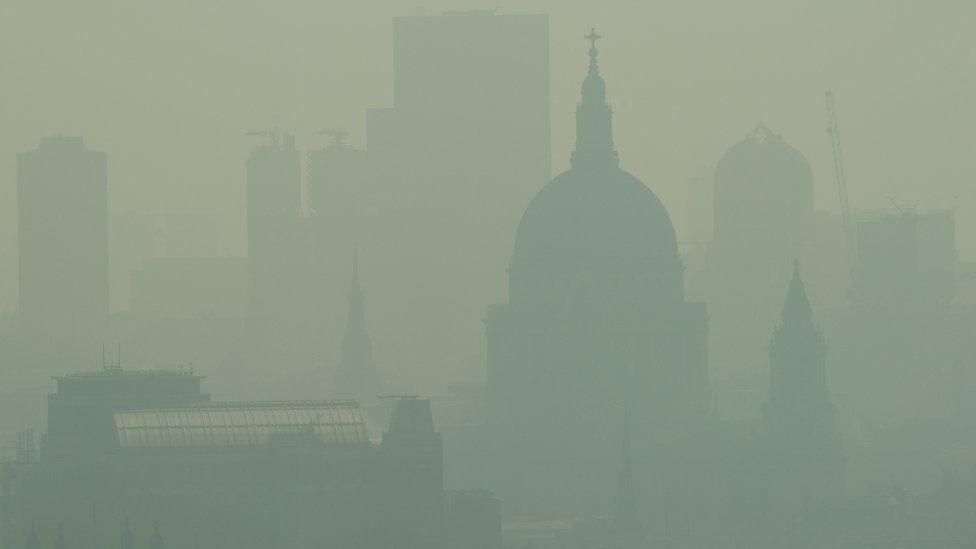T-Charge in London: What you wanted to know
- Published
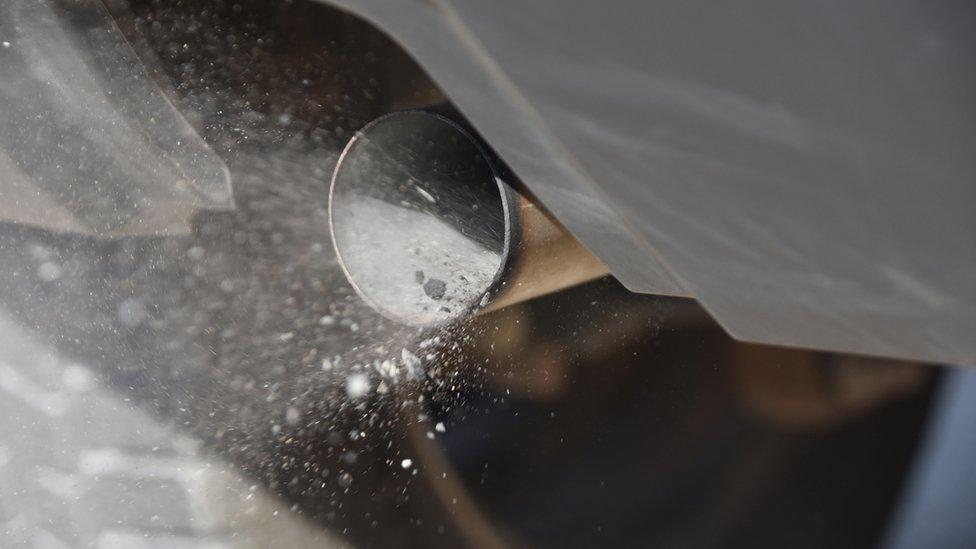
The T-Charge aims to cut pollution in the capital
A £10 charge for older, more polluting vehicles to drive into central London has come into force.
Here are some of the things you wanted to know about the T-Charge.

What does T-Charge mean?
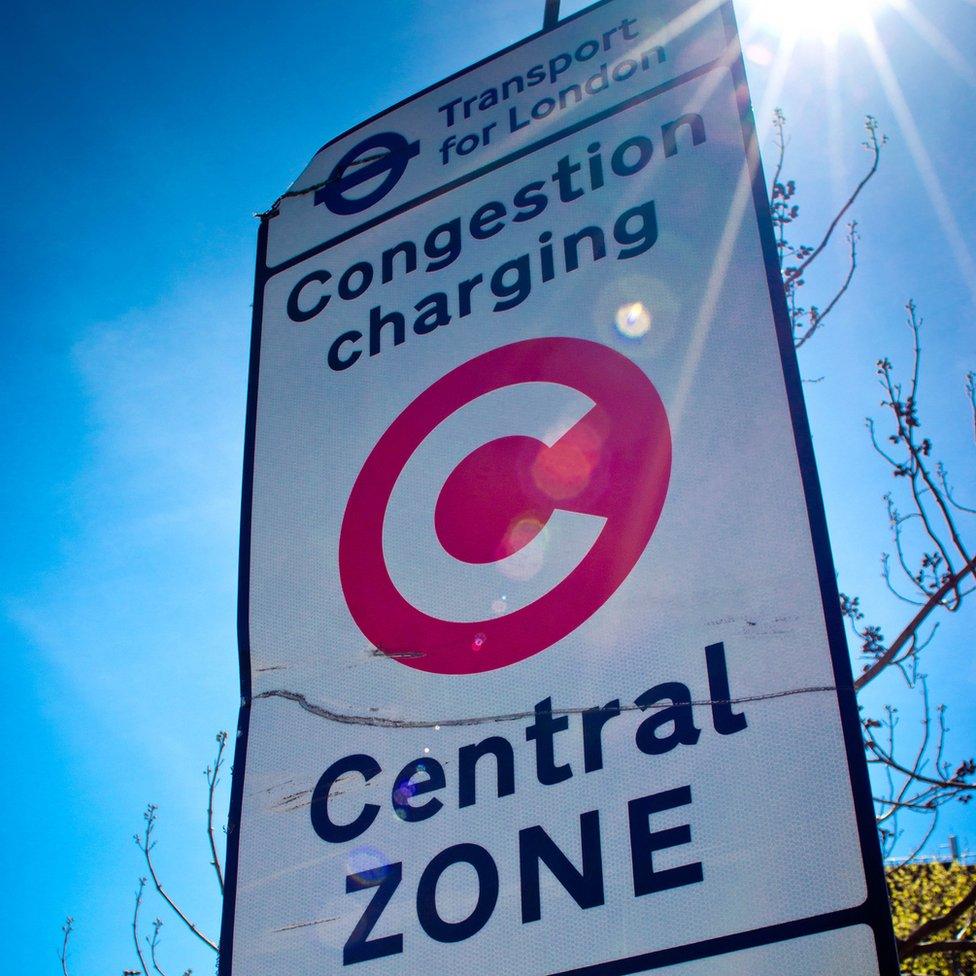
The T-Charge applies in the same area as the existing Congestion Charging Zone
The 'T' stands for toxicity. It is a levy aimed at improving air quality in the capital and mainly applies to diesel and petrol vehicles registered before 2006.
It puts an extra £10 charge on the same area as the existing Congestion Charge zone, bumping up the cost to £21.50 for those affected.
Mayor of London Sadiq Khan, who is behind the charge, says it will affect 34,000 motorists a month.

What are the required emissions standards and how do I know if my car meets them?
The minimum emission standards are Euro 4/IV for petrol and diesel vehicles and Euro 3, external for motorised tricycles and quadricycles.
You can check your vehicle registration document - the V5C - or input your number plate here, external to find out if your car meets the requirements.

When does the charge apply?
You have to pay an extra £10 per day if you drive within the Congestion Charge zone between 07:00 and 18:00, Monday to Friday.
There is no charge on weekends, public holidays, between Christmas Day and New Year's Day inclusive, or between 18:00 and 07:00 on weekdays.

What if I live within the Congestion Charge zone?
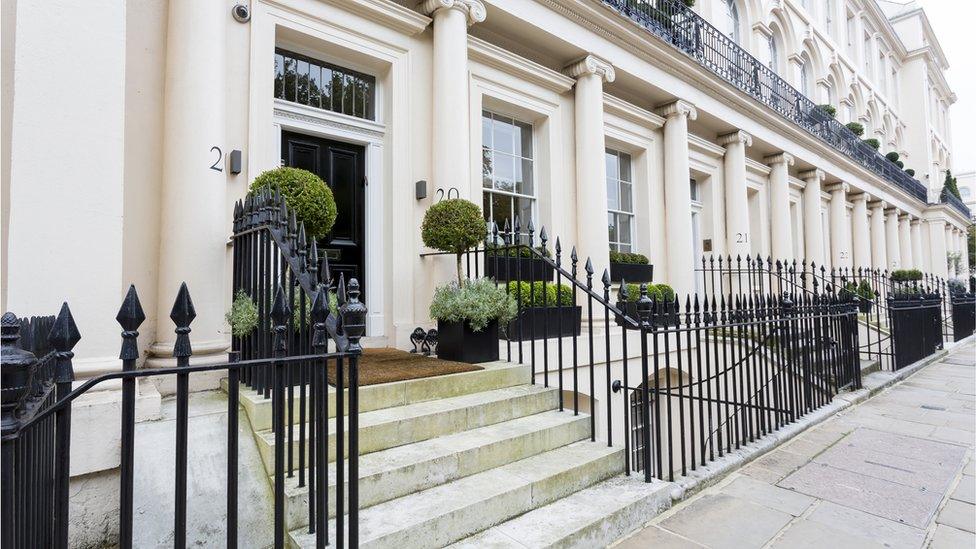
Those who live within the Congestion Charge Zone can register for a T-charge discount
If your vehicle is registered for any discount from the Congestion Charge, other than the 9 + seater discount, you will automatically benefit from the same discount from the T-Charge. , external
Vehicles that are parked all day in an on-street parking bay and displaying a valid resident's parking permit will not be charged for that day.

How do I pay?
The T-Charge uses the same payment and operational systems as the Congestion Charge.
If your vehicle is subject to the T-Charge, you pay for both the Congestion Charge and the T-Charge, if applicable, in the same transaction.
You can pay in the same way you pay for the Congestion Charge.
More information on payment options can be found here., external

What if I don't pay?
If enforcement officers photograph your vehicle in the Congestion Charge zone and you have not paid the T-charge by midnight on the following day you will receive a penalty charge notice (PCN), external
The penalty is £130 which drops to £65 if paid within 14 days. You have 28 days to pay otherwise you will receive a charge certificate for £195.

Does the T-Charge apply to taxis and buses?
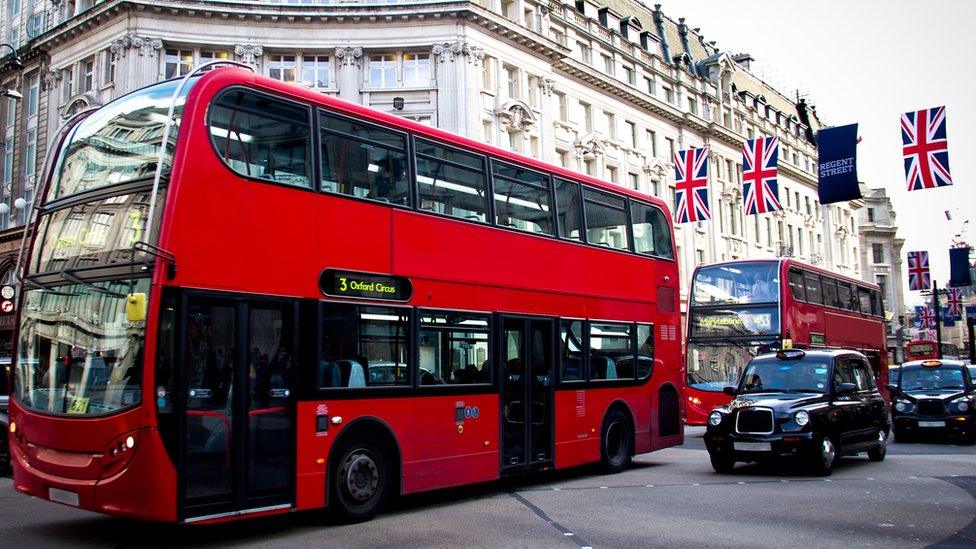
London buses meet the emission standards so are exempt from the charge
Taxis and private hire vehicles actively licensed with TfL are exempt from the T-Charge. Those not licensed with TfL that do not meet the emissions requirements have to pay.
London buses are exempt because they meet the emissions standard, TfL said. Other buses, minibuses, coaches and HGVs with higher emissions are not exempt.
Motorcycles are exempt from the levy, as are classic cars that do not need to be road taxed.
A full list of the vehicles subject to the charge can be found here., external
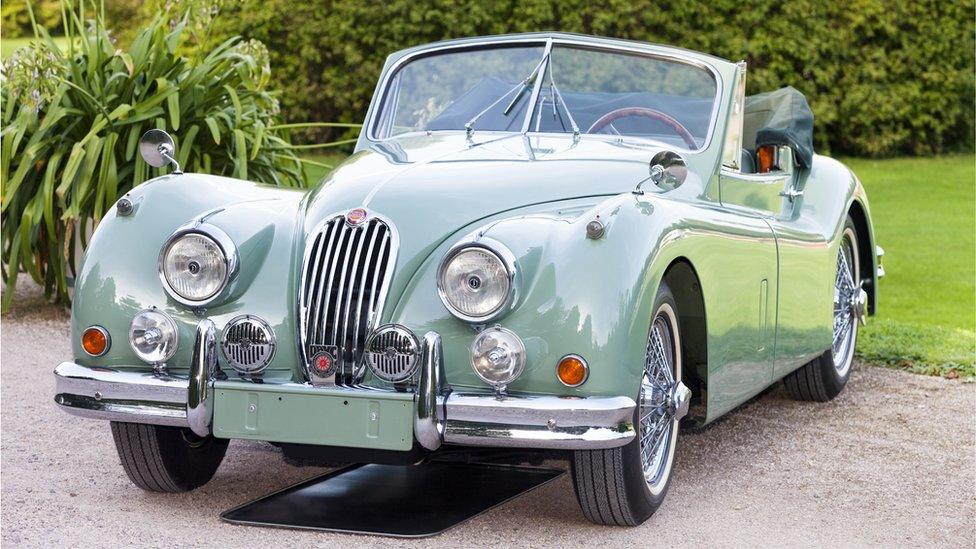
Classic cars like this Jaguar XK 140 DHC are exempt from the levy

How does this affect blue badge holders?
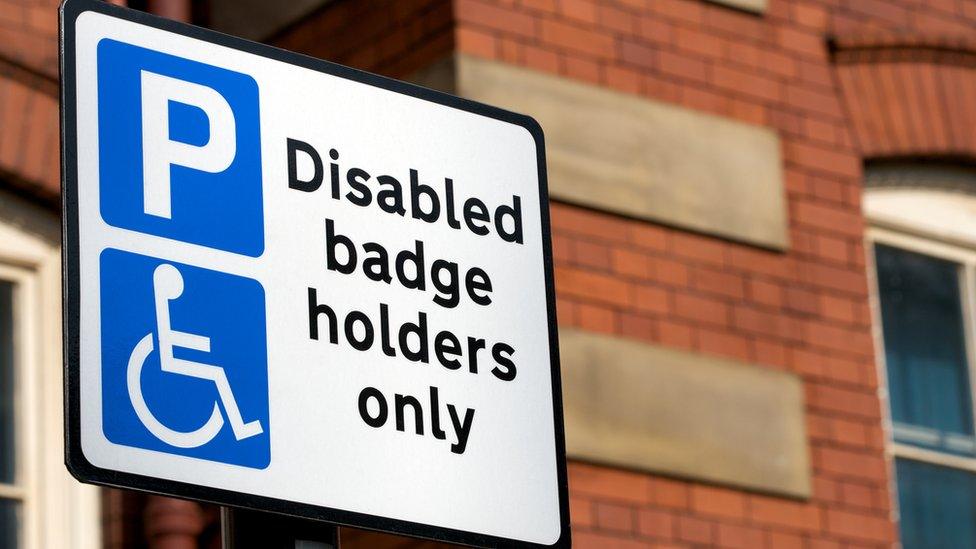
Disabled badge holders do not have to pay the extra levy on higher emission vehicles
Blue badge holders receive a 100% discount on the Congestion Charge, external for up to two cars they would normally travel in.
They are also exempt from the T-Charge.

What is the extra revenue raised from the T-Charge going to be used for?
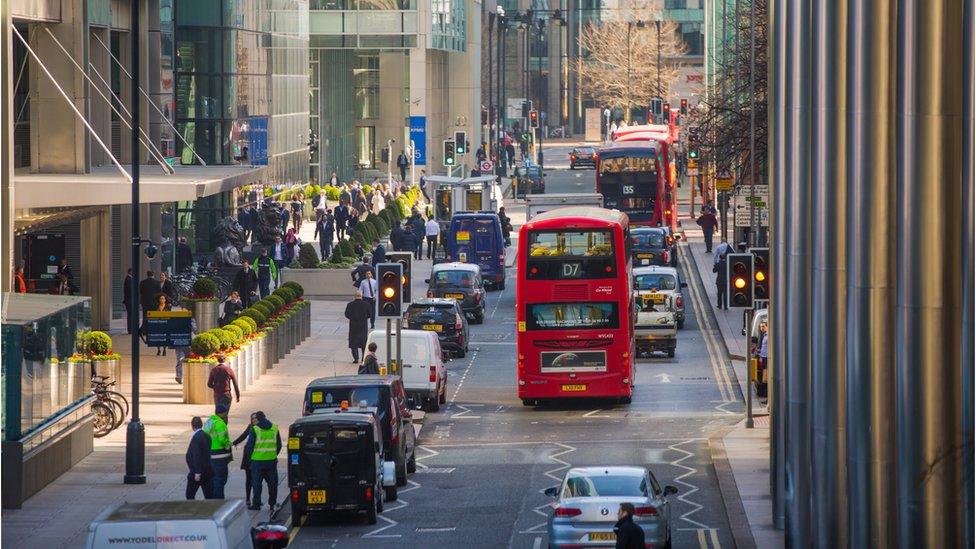
The money collected from the T-Charge will go back into transport
Transport for London told us the money will be reinvested into transport but said it could not be specific about exactly which areas it would be spent on.

Will there be a charge for wood burning stoves?
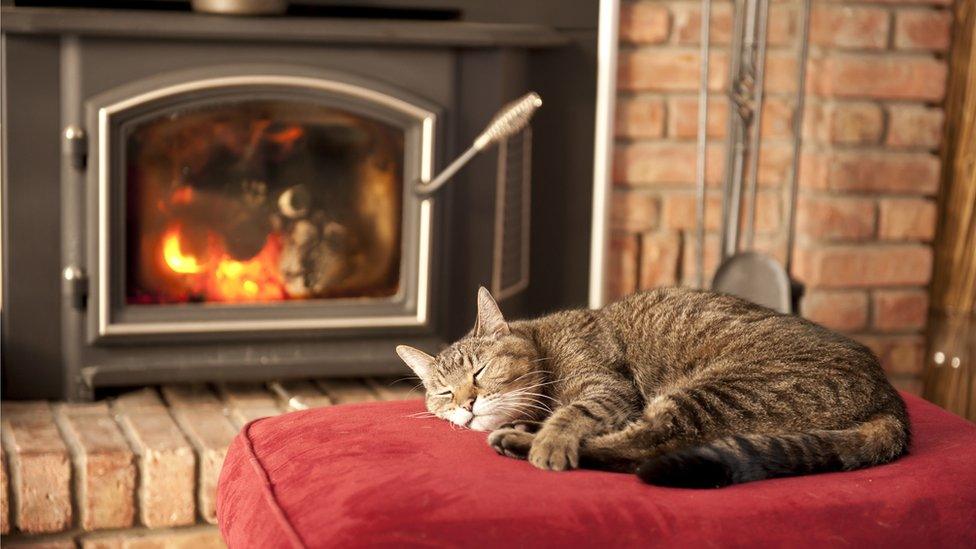
Sadiq Khan does not have the power to introduce a levy on wood burning stoves
"There are no plans to introduce a levy on people who have wood burning stoves at their homes and the mayor does not have the powers to do so," said a spokeswoman for Sadiq Khan.
- Published23 October 2017
- Published23 October 2017
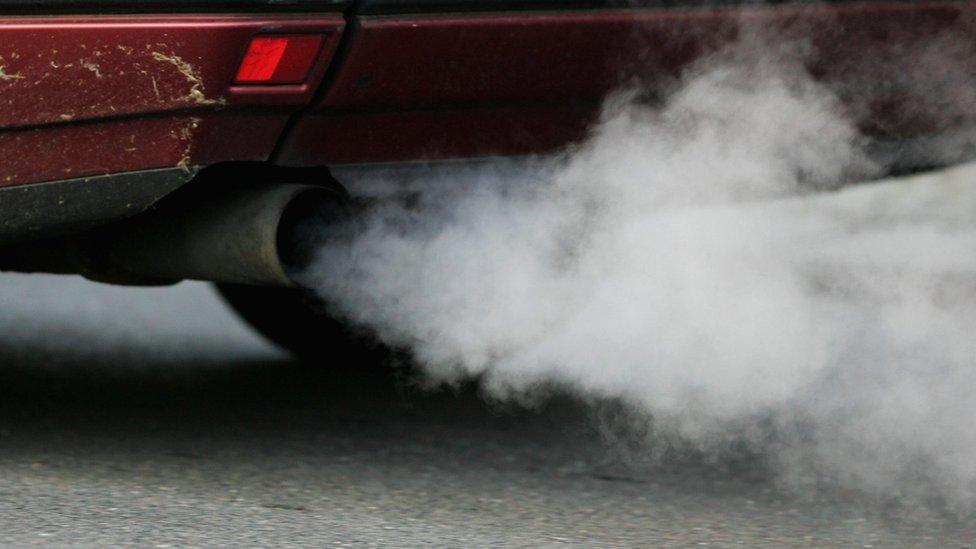
- Published23 January 2017
